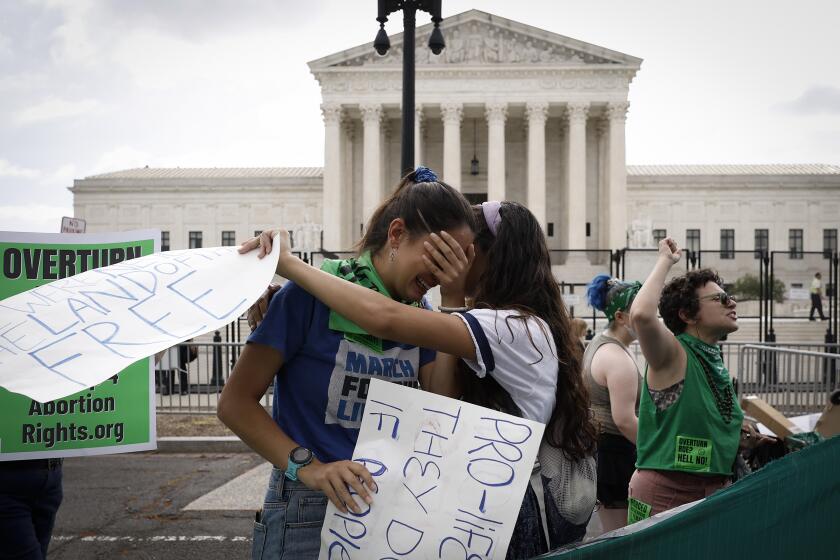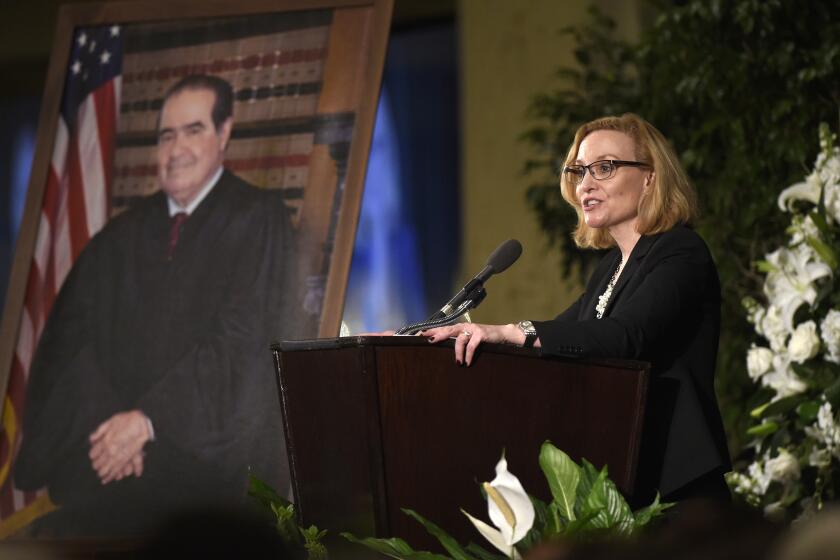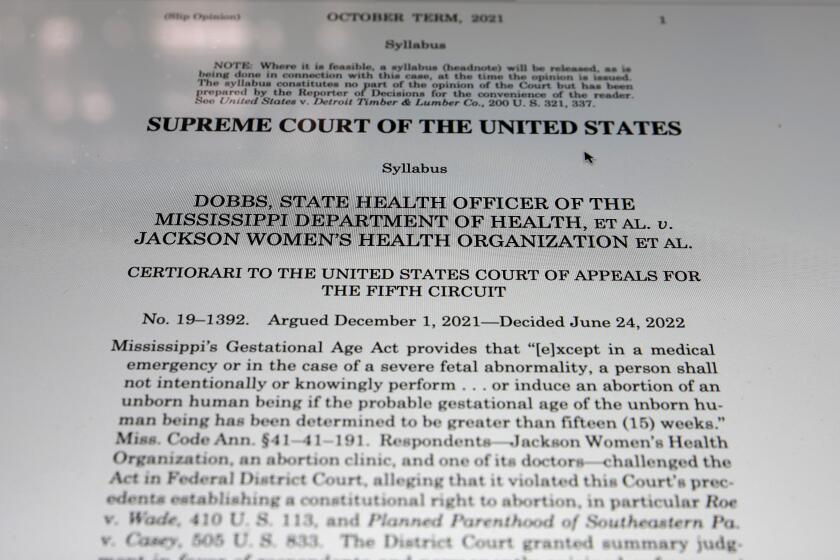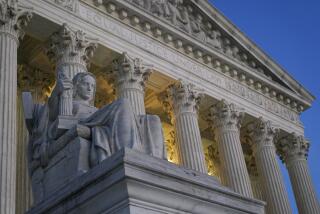With Roe dead, Republicans call for abortion bans in all states
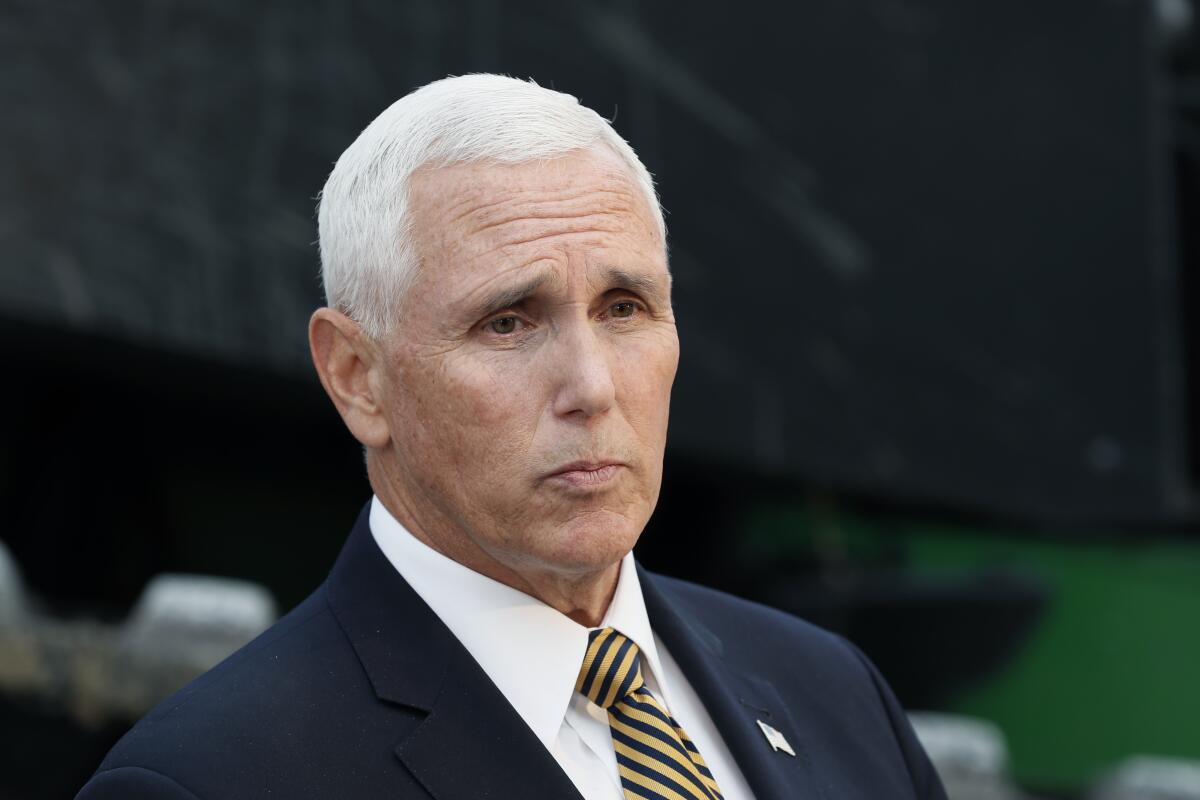
The Supreme Court’s ruling allowing states to set their own abortion laws will immediately halt the procedure in several states and thrust the issue of reproductive rights into this fall’s midterm elections.
The decision will also put significant pressure on President Biden — a latecomer to the modern abortion rights movement — to take steps to fortify abortion access, even though it is unclear what executive action is available to him.
Social conservatives who have been trying to reverse the 1973 Roe vs. Wade ruling for decades promised to build on their efforts by pushing for abortion bans in every state or antiabortion legislation at the federal level, particularly if they make gains in Congress in November’s elections.
Former Vice President Mike Pence said Friday that social conservatives in the post-Roe era “must not rest and must not relent until the sanctity of life is restored to the center of American law in every state in the land.”
In a historic reversal, the Supreme Court strikes down a half-century of nationwide abortion rights in the U.S.
“We will continue to look wherever we can go to save as many lives as possible,” said House Minority Leader Kevin McCarthy (R-Bakersfield), without getting into specifics about what kind of legislation Republicans would put forward if they take control of the House in the midterm elections.
Republicans have introduced bills to recognize a right to life from the moment of fertilization, legislation that would prohibit abortion nationwide. The Senate bill has 19 supporters and the House version has 164 — far short of the number needed for passage if Republicans controlled either chamber of the House.
Many Republicans have publicly tiptoed around the idea of a national ban. After a draft version of Justice Samuel A. Alito Jr.’s opinion was published in Politico last month, Senate Minority Leader Mitch McConnell (R-Ky.) said a national ban is “possible” if the court overturned Roe. He later walked back the comments, saying there are not 60 votes — the number needed to overcome a filibuster — for new abortion legislation from either side of the aisle.
Conservatives will now be faced with decisions about how aggressively they will pursue their efforts to outlaw abortion in each state and nationwide. Some are cautioning against overreach.
“It is going to be very important for pro-lifers to exercise prudence, principled incrementalism, not make the perfect the enemy of the good,” Ed Whelan, a senior fellow at the Ethics and Public Policy Center and a former clerk for Justice Antonin Scalia, said at a presentation at the conservative Heritage Foundation this month. “It is going to be very important, especially going into the elections in November, that we not overreach.”
Virginia Gov. Glenn Youngkin, a Republican, told the Washington Post within minutes of the ruling that he would seek a 15-week ban on abortion when the Legislature comes back into session in January.
Democrats warn that the decision in Dobbs vs. Jackson Women’s Health Organization will risk the health of millions of women, particularly in the South, where abortion access is expected to be eliminated within months. They too emphasized the stakes of the midterms. Democrats expect the decision to boost their House candidates in suburban districts and particularly among female voters who support abortion rights.
The midterms “will determine whether Republicans can place cruel new restrictions on reproductive rights, ban abortion nationwide with no exceptions, criminalize abortion providers, and punish women,” JB Poersch and Abby Curran Horrell, who run the two main political action committees supporting Democratic congressional candidates, said in a statement.
But historically, voters who cast their ballot based solely or largely on abortion are Republicans. Democratic voters who favor abortion rights have seldom made it their single-issue focus. The question now is whether that will change because the right to abortion has been stripped away. Democrats are confident that it will.
“It’s one thing to talk about in abstract that Roe could be at risk — I’ve talked about it for years,” Sen. Elizabeth Warren (D-Mass.) said before the opinion was announced. “This is the year that so many Americans who believed Roe was just part of the fabric of America and was never truly at risk come to terms with the reality that an extremist Supreme Court is willing to blow it up. That changes the dynamic at the ballot box.”
Roe vs. Wade went from ‘settled’ law to overruled in a few years, thanks to four unexpected developments.
Antiabortion advocates, however, say the Roe decision is merely proof of concept that social conservatives’ voices and votes have finally paid off. Their message now is that they must build on the Dobbs decision by electing Republicans who oppose abortion.
“Voters will debate and decide this issue and they deserve to know where every candidate in America stands, including those who toe the Democratic Party line of abortion on demand without limits,” said Susan B. Anthony Pro-Life America President Marjorie Dannenfelser, whose group has been knocking on doors in eight states with key Senate races this fall, including Arizona and Georgia. “Federal as well as state lawmakers must commit to being consensus builders who advocate for the most ambitious protections possible.”
The ruling also proved to the antiabortion movement and social conservatives that their trust in former President Trump paid off. Initially skeptical of the former president’s antiabortion bona fides, the movement backed him when he promised during his campaign to appoint judges who opposed the Roe decision. His three appointees all signed on to the Friday decision.
“Thank you, President Trump, for keeping your word and putting good Justices on the Supreme Court,” conservative radio host Erick Erickson tweeted.
The political fallout of the decision in Dobbs will be particularly acute in a handful of states.
Wisconsin, for instance, is the only state with a hotly contested Senate race that faces an immediate end to abortion access. The state’s 1849 abortion ban was poised to go back into effect immediately after the court’s decision Friday, banning the procedure except in cases to preserve the patient’s life. Planned Parenthood of Wisconsin had already stopped accepting new appointments for abortions before the decision was announced Friday, according to the Milwaukee Journal Sentinel.
Most of the places where abortion will be immediately banned are deep red states where Republicans are in power and face little risk of being unseated by Democrats who support abortion rights.
Within hours of the ruling, abortion bans went into effect in Alabama, Arkansas, Kentucky, Louisiana, Missouri, Oklahoma, South Dakota, Texas and Utah, according to Elizabeth Nash, who analyzes state policy for the Guttmacher Institute, a research organization that supports abortion rights.
The laws include exceptions for situations in which the patient’s life is at risk, but once-common exceptions for cases of rape and incest have largely been eliminated. Similar bans are to take effect in 30 days in Idaho and Tennessee and after some intermediary step before enactment, such as certification by the states’ attorneys general that Roe has been overturned, in Mississippi, North Dakota and Wyoming.
A look back at U.S. abortion laws and the Roe vs. Wade decision.
Other state bans are likely to follow, with Guttmacher concluding that 22 states will have bans or near-bans on abortion, although many state legislatures have already recessed for the year. In some states with divided legislatures, contentious battles over abortion policy are likely in the months ahead.
Both sides of the abortion debate agree that the short-term forum for those battles will be state courts and ballot referendums. Opponents of abortion have suggested that going to court to reverse injunctions on approved laws will be quicker than waiting for a legislature to meet. Supporters of abortion rights say they will head to court too.
“We’ll be pushing at the state level to establish state constitutional protections, whether that is via ballot initiatives or legislation … and we’re going to be going after these trigger laws,” said Nancy Northup, president of the Center for Reproductive Rights, the abortion rights organization that defended the Mississippi abortion clinic at the center of the Dobbs case. The group said it expects to file court challenges within days but declined to reveal specifics in advance.
The first ballot referendum on abortion is scheduled for Aug. 2 in Kansas, where voters will determine whether to amend the state constitution to explicitly say that nothing in the document constitutes a right to abortion. It is a measure that would determine whether the Legislature can pass laws regarding abortion and is likely to be viewed nationally as a bellwether on the issue.
At the White House, Biden is weighing executive orders he can take to protect abortion access, but any action would be limited.
Democrats have called on Biden to issue orders that could remove restrictions on medication abortion or provide travel vouchers for women seeking an abortion outside their home state, but the White House has remained tight-lipped about its plans.
“There’s some executive orders I could employ, we believe,” Biden told late-night host Jimmy Kimmel this month. “We’re looking at that right now.”
Jennifer Klein, director of the White House Gender Policy Council, along with outgoing White House counsel Dana Remus and Domestic Policy Council Director Susan Rice, have led White House efforts to meet with leaders of Planned Parenthood, NARAL Pro-Choice America and other advocates since the draft decision was leaked.
Vice President Kamala Harris has also taken a lead role, meeting with state attorneys general, faith leaders, law experts and advocates over the last few weeks about what the administration could do to protect the millions of women living in states that ban or restrict abortion access once the expected decision was handed down.
Former President Trump told Fox News that the ruling “in the end ... is something that will work out for everybody.” Asked if he played a role in the reversal, Trump said: “God made the decision.”
Within a few hours, Trump’s Save American political action committee sent out a statement in which the former president took credit for the ruling and asked for donations.
“Today’s decision, which is the biggest WIN for LIFE in a generation, along with other decisions that have been announced recently, were only made possible because I delivered everything as promised, including nominating and getting three highly respected and strong Constitutionalists confirmed to the United States Supreme Court. It was my great honor to do so!”
Times staff writers Courtney Subramanian and Noah Bierman contributed to this report.
More to Read
Get the L.A. Times Politics newsletter
Deeply reported insights into legislation, politics and policy from Sacramento, Washington and beyond. In your inbox three times per week.
You may occasionally receive promotional content from the Los Angeles Times.
